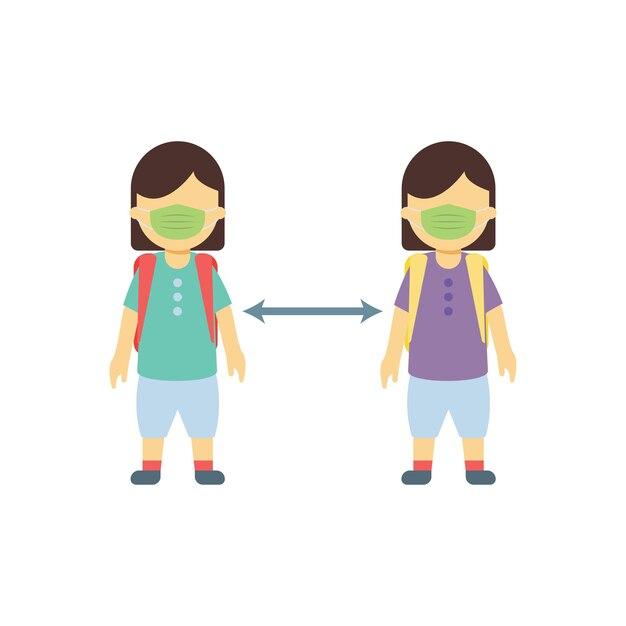In a world filled with diverse individuals and perspectives, maintaining social order becomes crucial for the smooth functioning of society. With social order, we can establish a stable and harmonious environment where people live and interact. But what exactly does it mean to maintain order and how is it accomplished?
Social order refers to the way society organizes itself to minimize conflict and ensure cooperation among its members. It encompasses various aspects, including rules, norms, and expectations that guide behavior. These elements work together to create a sense of predictability and cohesion within a community.
In this blog post, we will delve into the intricacies of social order and explore the mechanisms through which it is established and upheld. From the settling of social classes to the role of language in shaping discourse, we will examine the different perspectives and theories that shed light on this fascinating topic. So join us as we venture into the realm of social order and unravel the factors that contribute to its maintenance in society.

How Social Order Keeps Society from Turning into a Zoo 🐒
Maintaining Social Order: The Ultimate Balancing Act
In a world where chaos seems to lurk around every corner, it’s impressive how society manages to keep things running relatively smoothly. You may wonder, “How is social order maintained in society?” Well, my curious friend, it’s like taming a wild beast with a mix of rules, cooperation, and a dash of human nature. Let’s dive deeper into this fascinating topic!
It Takes a Village, or Maybe Just Some Social Norms… 🏙️
Social Norms: The Unofficial Handbook for Society
Ever noticed how people tend to follow certain unspoken rules while going about their daily lives? These are called social norms, and they play a vital role in maintaining social order. From queuing politely in line to covering our mouths when we sneeze, these norms shape our behavior. They act as invisible walls guiding us toward expected conduct. So, the next time you think about cutting in line, remember, social norms are watching!
Laws: The Backbone of Orderliness
Now, let’s talk about the big guns – laws! While social norms are more like gentle nudges in the right direction, laws are like the firm grip of authority ensuring society doesn’t go off the rails. Laws are the written rules that are enforced by the government, helping maintain peace and order. From traffic regulations to criminal offenses, laws act as a moral compass for a functioning society. So, the next time you’re tempted to go all “Fast & Furious” on the highway, just remember, breaking the law won’t impress Vin Diesel!
Ain’t No Mountain High Enough: The Pillars of Social Order ⛰️
Education: The Key to Unlocking Civilized Behavior
Education is not just about math and science; it’s about learning how to be a decent human being too! Schools and educational institutions play a crucial role in instilling shared values and teaching proper behavior. By imparting knowledge, fostering critical thinking, and promoting empathy, education shapes individuals who contribute positively to society. So, the next time you see someone arguing on a Facebook post, maybe it’s time to send them back to school!
Social Institutions: The Glue That Holds Society Together
Think of social institutions as the bouncers at the nightclub of social order. From family and marriage to government and religion, these institutions provide structure, values, and guidelines for individuals to follow. They help establish expectations for behavior and create a sense of belonging. So, the next time you’re fighting with your sibling over Netflix privileges, remember, the sacred institution of family is at stake!
A Balancing Act of Human Nature and Cooperation ✨
Self-Interest: It’s Not All About You, You Know!
Although humans can be quite selfish creatures, it turns out we also have a soft spot for cooperation. Self-interest is countered by our innate need for social connection and, dare I say it, empathy! Through cooperation, we form social bonds, share resources, and work towards common goals, ultimately helping to maintain social order. So, the next time you’re tempted to keep the last piece of pizza to yourself, remember, sharing isn’t just caring – it’s keeping society from descending into chaos!
Social Control: The Not-So-Silent Watchdog 🕵️♀️
Lastly, we have social control, the lifeguard at the pool of social order. Whether it’s your nosy neighbor peering through their curtains or your friends giving you side-eye when you break a social norm, society has its ways of keeping us in check. By monitoring and enforcing social norms, society maintains a delicate balance, preventing anarchy from taking over the dance floor. So, the next time you decide to wear sandals with socks, brace yourself for the judgmental gazes!
Wrapping Up: Society – The Perfectly Orchestrated Circus 🎪
To answer the burning question – “How is social order maintained in society?” – we can see that it’s a captivating blend of social norms, laws, education, social institutions, human nature, cooperation, and social control. Like a symphony orchestra, each component plays its part in creating a harmonious society. So, the next time you feel bewildered by the complexity of social order, just remember that it’s all a brilliantly coordinated circus act, keeping our world from turning into a zoo! 🎡

Keeping the Peace: Social Order in Society
FAQ: How is social order maintained in society
Social order is the glue that holds society together, ensuring things run smoothly and people coexist peacefully. But how exactly is this delicate balance maintained? Let’s dive into some frequently asked questions to demystify the inner workings of social order.
What does it mean to maintain order
Maintaining order refers to the processes and mechanisms that uphold harmony, stability, and organization within a society. It involves establishing and enforcing rules, resolving conflicts, and promoting cooperation among individuals and various social groups. Think of it as the operating system that keeps society ticking.
How do you settle a class
Ah, the age-old class conundrum! Although we’d all like to have a magic wand to settle class differences, the reality is a bit more complex. Social order deals with managing these divisions by offering equal opportunities, ensuring fairness in distribution of resources, and promoting social mobility. It’s like trying to balance a precarious game of Jenga, but without toppling the tower.
What is social order and how is it maintained
Social order is the invisible hand that maintains the fabric of our society. It encompasses the unwritten rules, norms, and expectations that guide our behavior and interactions. Think of it as society’s secret recipe for harmony. To maintain it, we rely on various mechanisms such as laws, institutions, cultural values, and social norms. It’s like a well-choreographed dance, with each step carefully orchestrated to avoid chaos or stepping on someone’s toes.
What is social order in functionalist theory
Ah, functionalism, the classic sociological theory that views society as a well-oiled machine, with each part playing a vital role. According to functionalists, social order arises from the interdependence of different social institutions, such as education, economy, and government. It’s like a symphony where every instrument harmonizes to create a beautiful melody. Well, except maybe the occasional sour note.
What is discourse in language learning
Discourse in language learning refers to the way we use language to communicate and construct meaning. It involves not only the words we choose but also the social and cultural context in which we use them. Think of it as a linguistic dance, where the steps, gestures, and rhythm of conversation shape the understanding between individuals.
How is social order maintained in society
Ah, the million-dollar question! Social order is maintained through a delicate combination of carrots and sticks. On one hand, we have formal mechanisms such as laws, police forces, and judicial systems that enforce order and deter wrongdoing. On the other hand, we have informal mechanisms such as social norms, values, and peer pressure that shape our behavior and ensure we don’t deviate too far from the norm. It’s like a high-stakes game of balancing acts, where society holds up a tightrope for us to walk, hoping we stay on the straight and narrow.
So, there you have it! Maintaining social order is no easy feat, but through a complex web of rules, institutions, and social expectations, society manages to keep the peace. Next time you navigate the intricate tapestry of interactions, remember the invisible hand of social order guiding you along. After all, a little order goes a long way in keeping society humming like a well-tuned engine.
